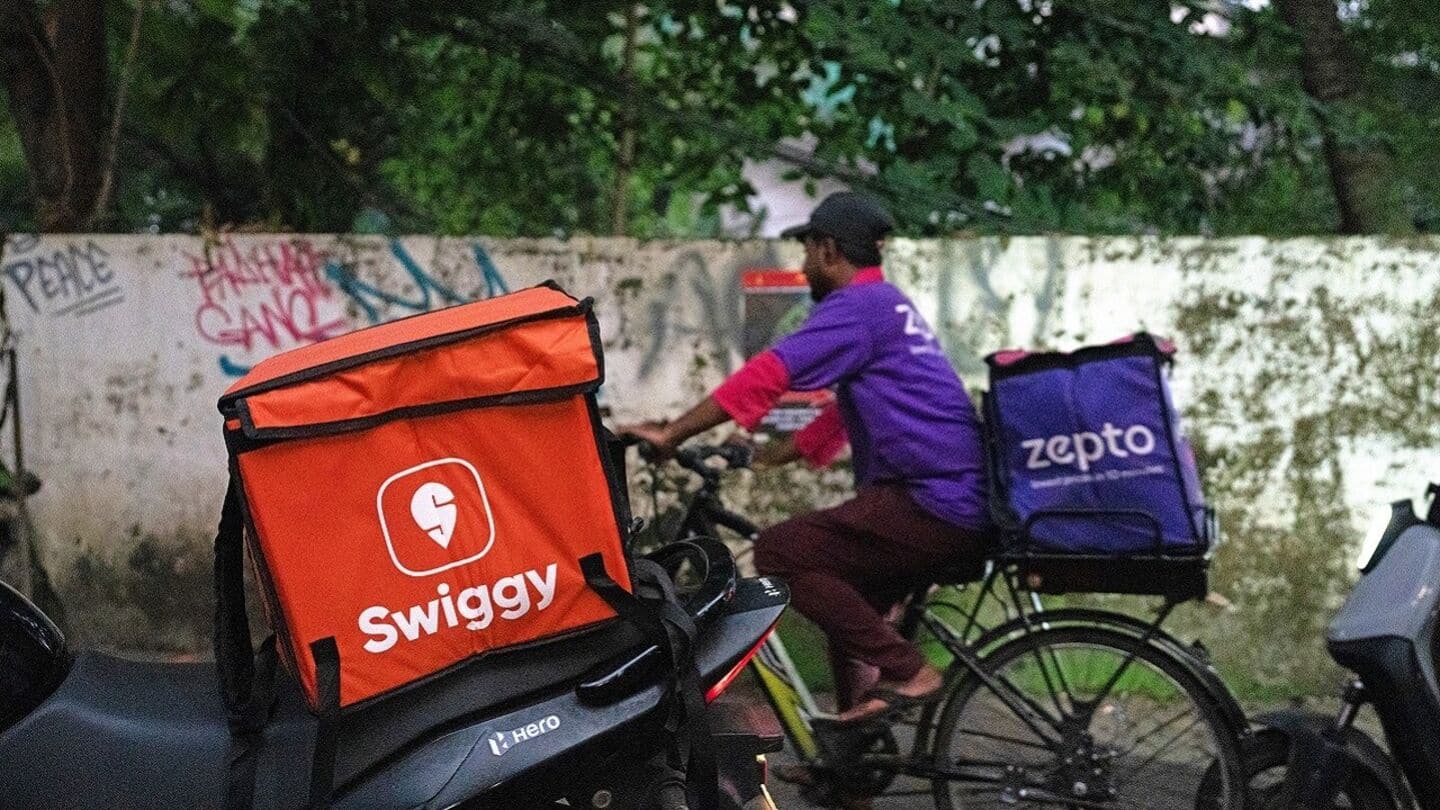
Swiggy, Uber must contribute 1-2% turnover for gig workers
What's the story
In a landmark decision, the Indian government has made it mandatory for platforms like Swiggy, Uber, and Urban Company to contribute 1-2% of their annual turnover to gig worker welfare. The contribution will be capped at 5% of the total payments made or due to these workers. For the first time, Indian law has formally defined terms like "gig worker," "platform worker," and "aggregator."
Worker identification
UAN to be issued for gig workers
The government has announced that a Universal Account Number (UAN) linked to Aadhaar will be issued to gig and platform workers. This move is aimed at making welfare benefits fully portable and accessible across states, even in cases of migration. The Code on Social Security, 2020 defines gig workers as individuals earning outside a traditional employer-employee relationship and grants them access to social security benefits, including healthcare, accident insurance, maternity support, and retirement protection.
Oversight body
National Social Security Board to oversee welfare schemes
The National Social Security Board will advise the Centre, frame and monitor schemes for unorganized, gig and platform workers. It will also review state-level records and fund utilization. Registration is mandatory for gig and platform workers above 16 years, based on self-declaration and Aadhaar. After registration, they can access scheme benefits. Governments may also set up helplines to help with registration/enrollment.
Financial responsibility
Aggregators to contribute to social security fund
Aggregators will have to contribute 1-2% of their annual turnover, capped at 5% of payments made to gig and platform workers, toward a Social Security Fund. The Board will be expanded to include representatives from aggregators and gig workers for their welfare. This fund will finance central social security schemes for these workers. States like Karnataka and Telangana have already implemented similar welfare frameworks.
State initiatives
Karnataka and Telangana lead with state-specific welfare acts
Karnataka has enacted the Karnataka Platform-Based Gig Workers (Social Security and Welfare) Act, 2025, which mandates a welfare fee of 1-5% per transaction made by aggregator platforms to gig workers. The law aims to protect worker rights, enhance platform accountability, and ensure transparency in automated decision-making systems. Similarly, Telangana's cabinet recently approved the draft Telangana Gig and Platform Workers (Registration, Social Security and Welfare) Act, 2025.
Regulatory reforms
New labor codes to modernize India's labor regulations
The Indian government has also notified the four Labour Codes, the Code on Wages (2019), Industrial Relations Code (2020), Code on Social Security (2020), and the Occupational Safety, Health and Working Conditions Code (2020), effective from November 21, 2025. These codes consolidate and rationalize 29 existing labor laws. The government says these reforms modernize labor regulations, strengthen worker welfare, and align India's labor ecosystem with global standards.